Farmers Markets are becoming increasingly popular among consumers and farmers and seeing that many people want to purchase the freshest produce directly from the farmers themselves.
It also gives customers in the area a chance to support local businesses while different family farms are able to thrive and make profits.
For local producers, a farmers’ market stall or stand is an excellent way to sell their produce.
But to be a success, the whole operation needs careful planning, from choosing your product to picking a stall location and getting your insurance sorted.
Farmers markets, while growing in popularity, present specific insurance challenges.
They are usually small businesses, run out of neighbors’ garages and basements, and piggyback off other retail spaces like fairgrounds and town squares. This can make it difficult to secure the right coverage for a farmer’s market business.
In this article, we will explain how to manage your farmer’s market insurance and everything you need to know about insuring your farmers’ market stall.
- Farmers Market Insurance Basics
- Farmers Market Insurance Options
- Commercial General Liability (CGL) Insurance
- Directors and Officers (D&O) Liability Insurance
- Workers’ Compensation Insurance
- Auto Insurance
- Property Insurance
- Employment Practices Liability (EPL) Insurance
- Farmers Market Liability Insurance
- Product Liability Insurance
- General Liability Insurance
- Home-Based Farm Business Insurance
- Business Owner’s Policy
- Equipment Breakdown Insurance
- Workers Compensation Insurance
- Event Insurance
- Insurance Coverage
- Insurance Rate Comparison
- Farmers Market Vendor Applicable Risks
- Conclusion
Farmers Market Insurance Basics
What is Insurance?
Insurance is a contract between two parties, where the first party (the insurer) agrees to compensate the second party (the insured) in the event that some specified event occurs. The specified event is called an “insurable” risk.
Insurance companies collect premiums from policyholders and then use the premiums to pay for losses caused by perils covered by their policies.
Insurance markets are often segregated by lines of business and by types of policy coverage (e.g., life, property, liability). In general, corporate insurance refers to companies that insure risks of other organizations as part of their business activities such as fidelity or surety bonds or professional liability insurance. Personal insurance refers to individuals that insure themselves against personal risks such as medical expenses or losses from accidents or injury.
What does an insurance policy contain?
An insurance policy is a legal document that defines the terms of a contract between an insured person and an insurance company.
It specifies what is covered, what isn’t covered, and how much the insurance company will pay in the event of certain types of losses.
The policy also specifies the time period for which coverage applies and whether it is renewable or nonrenewable.
Insurance policies are written in different ways depending on the type of insurance being purchased. For example, life insurance policies typically include clauses that allow them to be renewed at the end of their term.
An insurance policy is a legal contract between you and your insurance company. It outlines the terms of your coverage, including what’s covered, how much you’ll pay in premiums and deductibles, and what happens in case of an accident or other event that triggers a claim.
Here are some of the key components of most policies:
The Insured
This is you—the person or entity that will be receiving payments from the insurance company if something happens to their property.
Covered Perils
This is what’s covered under the policy—things like fire damage, theft or vandalism, natural disasters, etc.
Insured Property
This is what’s covered by the policy—typically your home or business structure and its contents (furniture, appliances).
Coverage Amounts
This is how much money will be paid out under each type of coverage; for instance, $100,000 worth of property damage liability coverage would mean the insurance company would pay up to $100k per incident—not per year!

How does insurance work?
Insurance is a form of risk management. It allows you to transfer the risk of your property being damaged or destroyed from yourself to an insurance company.
When you insure your home or car, for example, you’re agreeing to pay a certain amount for a certain time period in exchange for the protection that comes with insurance. If something happens to your home or car, the insurance company will pay the cost of repairing or replacing it.
Insurance companies are businesses that make money by collecting premiums (the money paid by policyholders) and investing those premiums in stocks, bonds and other assets. They work hard to ensure they can pay claims when they are needed while still maintaining the value of their investments so they can continue paying claims in future years.
What is Farmers Market Insurance?
Farmers market insurance is a type of business insurance that protects business owners who sell their products at farmers markets. Farmers market insurance helps protect your business against the risks associated with selling food at public events or gatherings.
The purpose of this type of insurance is to help protect you from financial loss if your product becomes contaminated or spoils, or if a customer claims illness from eating your food.
In addition to protecting you from legal action and illness claims, farmers’ market insurance can also help protect your reputation as a vendor at various farmers’ markets around the country.
If someone has a bad experience with one of your products, it could secure you from any legal actions he or she takes against you.
Farmers Market Insurance Options
Farmers market insurance allows farmers to enjoy the benefits of direct marketing, while also protecting them against losses due to weather or other unexpected events.
Farmers market insurance can be purchased on an annual basis or as a one-time policy, depending on the needs of each farmer. Some farmers may want protection against weather damage and theft, while others only need coverage for liability claims made by customers who become ill after eating food purchased at the market.
It is important for farmers who operate a farmer’s market to understand their options when it comes to buying insurance. There are many different types of policies available and not all policies will offer the same level of protection for your business.
The following are some common types of insurance coverage for farmers’ markets:
Commercial General Liability (CGL) Insurance
Commercial general liability (CGL) insurance is a type of business insurance that protects your company in the event that you are sued for negligence or other reasons. This insurance can protect you from many different types of claims, including slip and fall accidents, construction accidents, and workers’ compensation claims. CGL also offers protection against libel and slander lawsuits as well as property damage caused by your company’s operations.
If you own a small business or work in an office environment, it’s important to remember that this type of insurance covers a wide range of situations beyond those typically associated with personal injury claims. If someone sues your company because they were injured on your property or otherwise harmed by something you did or failed to do, CGL will cover any legal fees required to defend your interests in court.
The policy can cover a wide range of events, including
- Accidents involving customers or employees
- Product liability cases
- Employment practices liability cases
- Product contamination, such as mold in a building
- Property damage to third parties (such as contractors or subcontractors) caused by your operations.
Directors and Officers (D&O) Liability Insurance
Directors and officers (D&O) liability insurance is a type of commercial general liability insurance that protects directors and officers against claims made against them in their capacity as company officials.
It covers both criminal and civil penalties, as well as legal defense costs. The policy is designed to give companies peace of mind by providing protection for their directors, officers, and key employees.
This coverage is an important part of any business’s risk management strategy because it can cover the cost of defending against or paying damages resulting from certain lawsuits that are filed against your business. It also provides coverage for expenses related to criminal investigations or prosecutions that may occur if those lawsuits are successful.
This type of insurance typically provides coverage for claims such as:
- Breach of fiduciary duty
- Employment-related actions
- Misrepresentation or omission
- Violation of law or rule by the organization
- Fraudulent statements or omissions by the organization’s officers and directors
Workers’ Compensation Insurance
Workers’ compensation insurance is a type of insurance that protects employees from being sued by an employer. It covers injuries to workers and illnesses that occur on the job, as well as the cost of lost wages.
Workers’ compensation coverage has been mandatory in some states since the 1920s, but it is still optional in others. If you work in a state where it is optional, you may choose to purchase workers’ compensation insurance for yourself or for your business if you feel that doing so would be beneficial to your company.
The purpose of workers’ compensation insurance is to provide medical care, rehabilitation services, and lost wages while also protecting employers from lawsuits filed by employees who were injured on the job. In addition to paying out claims when they are made by employees who have been injured due to their employer’s negligence or failure to provide a safe work environment, some companies also pay out claims without any fault being found on their part due to circumstances beyond their control (such as an accident).
When purchasing workers’ compensation insurance, you may be able to choose from several different types of policies:
- Individual: Provides coverage for an individual worker
- Employer’s liability: Provides coverage against lawsuits filed by employees who are injured on the job
- General liability: Covers claims related to injuries or property damage that occur at your business location
- Commercial auto: Offers protection for vehicles owned by your company.
Auto Insurance
Auto insurance is a type of insurance that covers the vehicle and its passengers in the event of a collision or other accident. This type of insurance is mandatory in most states, and it’s designed to protect you and your loved ones from financial loss in the event of an accident.
Auto insurance can be purchased through an agent or directly through an insurer. It’s important to shop around for quotes before you purchase auto insurance to ensure that you’re getting the best price possible.
Auto insurance rates depend on several factors including:
- Driving record (accidents, tickets)
- Age (your age at the time of purchase)
- Gender (women tend to pay less than men)
- Credit score (people with poor credit scores tend to pay more than those with excellent credit scores) -Your car’s make and model
- Where you live (your state or province)
- Your driving habits (how often you drive, how many miles per year) you drive, and how many miles per year)
- Your insurance provider (some insurers charge more than others)
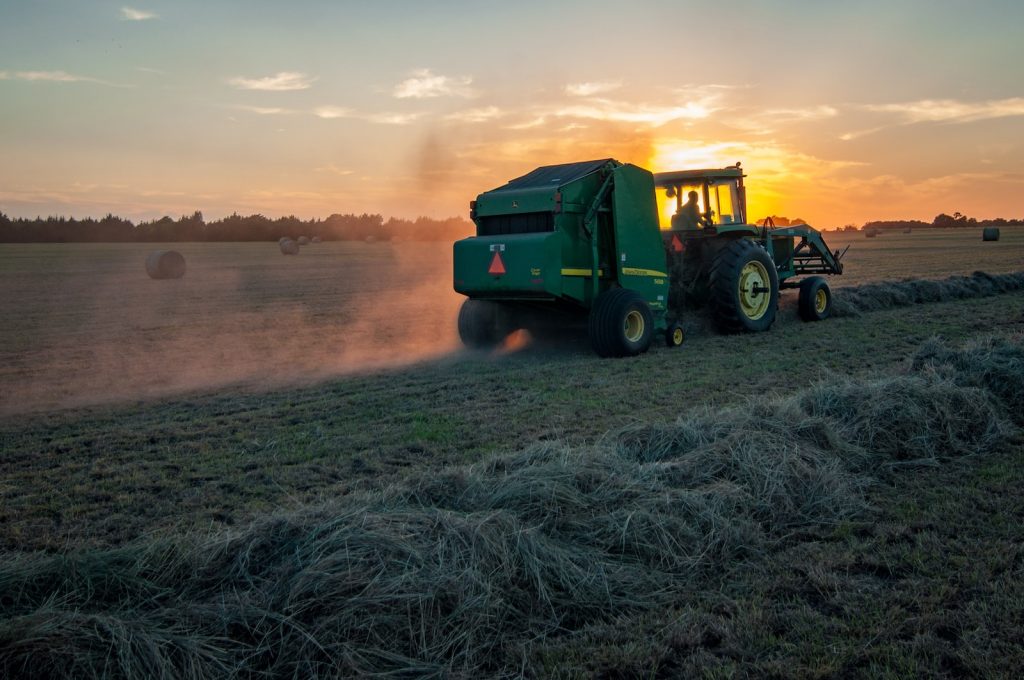
Property Insurance
Property insurance is one of the most important types of insurance you can buy. It protects your home, your belongings, and the land that surrounds your home from damage due to fire or theft, among other things.
The cost of property insurance varies depending on several factors, including the type of policy you purchase and where you live.
Here are some things to consider when shopping for a property insurance policy:
- What kind of coverage do you need? Most property insurance policies cover damage due to theft or fire, but there are many other events that may qualify for coverage. Make sure you talk with an agent about what’s covered in your specific area before signing up for any policies.
- How much coverage do you need? The amount of coverage required depends on several factors including how much debt is tied up in your home and how much it would cost to replace it if something happened (this could be as little as $5,000).
- What deductible should I choose? A deductible is an amount that needs to be paid out-of-pocket before an insurer will start paying for damages caused by an event like a fire or storm surge caused by Hurricane Sandy (which can be as high as $10k). Choosing a higher deductible means
Employment Practices Liability (EPL) Insurance
Employment Practices Liability (EPL) Insurance for Farmer’s Markets is a new type of insurance designed to protect farmers from liability in the event of an employment-related lawsuit.
The EPL market has been growing steadily in recent years, with more than $1 billion in annual premiums generated by 2015. The EPL market provides coverage for employers who hire independent contractors and other non-employees, as well as employers who have employees under their control at all times.
The EPL market has seen explosive growth since the recession and financial crisis of 2008, which led to an increase in lawsuits against employers and the proliferation of laws protecting employees from discrimination, harassment, and wrongful termination.
A farmer can purchase EPL insurance in one of three ways: through an agency (e.g., Aspen Insurance), through an A&H (general agent), or directly from a carrier. In order to purchase this type of insurance, the farmer must provide proof that they employ no more than three full-time employees.
Farmers Market Liability Insurance
Farmers’ market liability insurance is a type of policy that covers injuries that occur on the premises of the farmers market. Particularly, it covers injuries related to foodborne illnesses and injuries related to the sale and distribution of products at the farmer’s market.
Farmers market liability insurance is an important part of your business because it helps protect you from lawsuits that could result from injury or illness. Farmer’s market liability insurance also helps you avoid bankruptcy if you were sued for negligence, which could happen if someone was injured by one of your products.
There are different types of policies available depending on your needs: some cover only specific types of injuries, while others cover all types of injuries.
Some policies have deductibles, while others do not have deductibles.
Some policies have limits on how much money they will pay out per claim or per year, while other policies do not have any limit at all!
If you’re starting up a new business at your local farmers market, then it’s important that you talk with an insurance agent about getting farmers market liability insurance before opening day!
Product Liability Insurance
Farmers markets are great places to buy fresh produce and other goods, but they can also be dangerous.
If you’re selling at a farmers market, it’s important that you have the right kind of product liability insurance in place.
What Is Product Liability Insurance?
Product liability insurance is a form of insurance that covers you if someone gets injured while using your product. This can happen in a variety of ways:
- If an individual is injured by falling off a ladder while using your ladder, for example, you’d need to make sure your policy covers that type of claim.
- If someone has an allergic reaction to one of your products, you’ll need coverage to cover medical bills related to that incident.
- If someone gets sick after using one of your products but doesn’t get sick immediately after using them—for example, if they get food poisoning from eating something that was made with an ingredient from one of your products—you’ll want coverage for this scenario as well.
- A fire may occur at a farmers market because there’s no sprinkler system or smoke detectors—and even if there are smoke detectors, they might not work properly when there’s a fire nearby (which happens more often than people think). You’ll need product liability insurance to cover any losses you may incur from this scenario.
- If someone gets hurt because of your negligence—for example, if an employee trips over a box and breaks their arm—you’ll want coverage for this as well.
General Liability Insurance
Farmers markets are great place for farmers to sell their goods, but they can also be a source of liability. Whether your market is in a city or on a farm, you may be exposed to liability for injuries or damages caused by your market patrons. Farmers markets are sometimes called “community-supported agriculture” (CSA) farms because they offer to produce grown by local farmers who grow it without pesticides or other chemicals on a limited scale.
If you want to be sure that you’re covered in the event of an accident involving your customers or vendors, adding general liability insurance to your policy is the right thing to do.
General Liability Insurance Coverage
Most farmers markets will not have separate insurance coverage for their businesses—they generally purchase commercial general liability insurance instead. This type of insurance covers any type of business, including farmers markets, and it provides coverage against lawsuits that could result from bodily injury, property damage, and third-party claims related to events that took place on the premises or at other locations where the business takes place.
General Liability Insurance Basics
General liability policies have several different types of coverage available: bodily injury; property damage; uninsured/underinsured motorist (UM) coverage; comprehensive and collision coverage; excess/umbrella coverage; economic loss protection and medical payments. It’s important to note that although these are the most common types of coverage, there are many variations that can be added to your policy depending on your industry and state laws
Home-Based Farm Business Insurance
You’ve got a great idea for a home-based business. You’ve got your supplies and equipment ready to go, and you’re ready to start making money. But what about insurance?
If you’re going to be working from home, you need to make sure your home is covered by insurance. If it’s not, then you could lose everything if something happens.
Home-based farm businesses are especially risky because they are more likely than other types of businesses to have problems with pests and vermin. In addition, there is always a risk of fire or natural disasters like floods or tornadoes destroying your property.
You can protect yourself by getting the right kind of coverage for your business needs. To make sure you have the right kind of coverage, talk to your insurance agent about the following:
- Property damage and liability coverage
- Business interruption insurance
- Inland marine (for crops in storage)
- Workers’ compensation
- Property insurance for your home, land, and vehicles
- Flood Insurance
- Business income coverage
To make sure you have the right amount of coverage, talk to your agent about the costs of rebuilding or replacing damaged property.
You may also want to consider whether or not it would be better to rent a storage facility rather than storing your crops on your property.
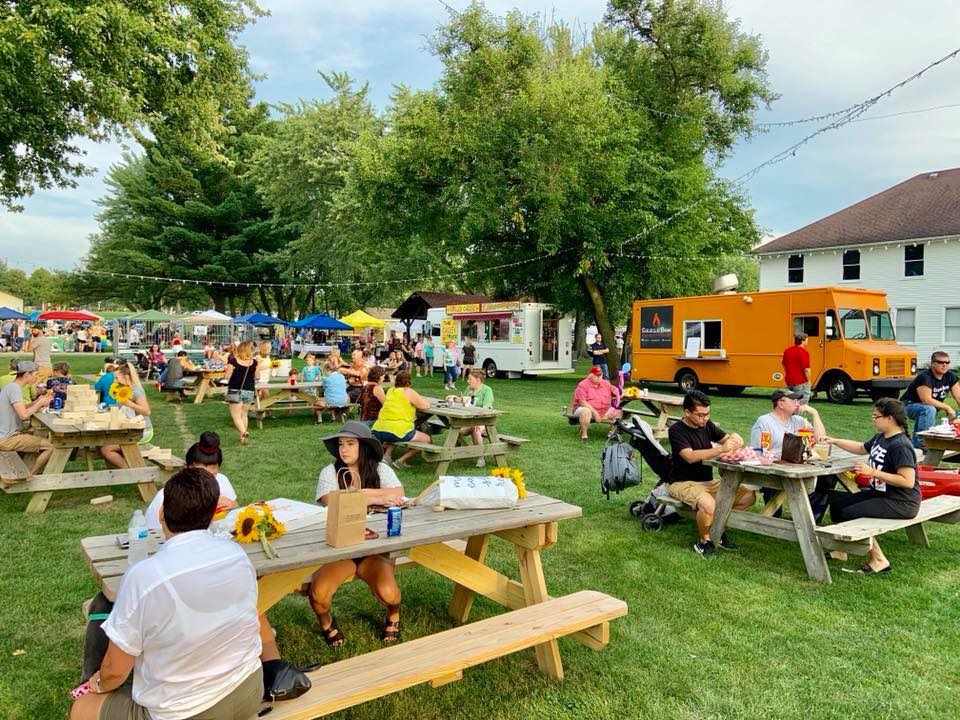
Business Owner’s Policy
A business owner’s policy (BOP) is a type of insurance that covers the risks associated with owning a business. It can be confusing to know whether you should have this type of insurance, and what it covers.
What Is Business Owner’s Insurance?
A BOP protects your company against losses that may occur as a result of events like fire, theft, or vandalism. Unlike an all-risk policy, which provides broader coverage for property damage and liability claims, BOPs are more focused on protecting your business from the specific threats posed by running a company.
What Does Business Owner’s Insurance Cover?
A BOP will typically cover:
Property damage caused by events like fire or vandalism
Losses resulting from employee theft or embezzlement
Personal injury claims filed by customers due to customer negligence or product defects
Legal defense costs if you’re sued by someone whose claim is covered by your BOP policy In addition to protecting you from liability claims, BOPs can also cover cleanup costs, equipment replacement, and lost income if your business is forced to close temporarily due to a covered event.
The coverage for these types of losses is usually limited in an all-risk policy.
BOPs are usually more expensive than all-risk policies, but they’re worth it if you run a business that exposes you to significant liability risks.
If your company is sued and found liable for damages, the cost of that verdict can easily exceed $100,000.
Equipment Breakdown Insurance
Farmers Market Equipment Breakdown Insurance is an insurance policy that covers the cost of repairing or replacing your equipment in case of breakdown or damage. It also covers the cost of renting equipment to replace your own during the time it takes to repair or replace the damaged or broken equipment.
The amount of coverage you have will depend on your needs and how much money you want to spend on this type of insurance.
For example, if you own a tractor and combine, Farmers Market Equipment Breakdown Insurance may be enough for your needs. However, if you need to insure more than one piece of equipment, this type of coverage may not be enough.
In this case, it would be wise to purchase additional coverage through another company or through your own personal homeowner’s policy.
Workers Compensation Insurance
Farmers market workers’ compensation insurance can help you protect your business and its employees from the risks associated with running a farmers market. Farmers market workers compensation insurance can help cover the cost of medical treatment for any injuries that occur on the job, as well as lost wages and other damages.
If you run a farmers market, it’s important that you have adequate insurance coverage in place so that your employees are protected in case of an accident or injury. As a small business owner, it’s also important that you have adequate protection for yourself so that if someone else is injured on your property or while they’re using your products or services, they can hold you responsible.
Event Insurance
If you’re planning a farmers market of your own, it’s important to know what your responsibilities are as an organizer. You’ll need insurance to protect yourself and others who might be involved with the event.
Here’s what you need to know about event insurance for farmers’ markets:
What is Event Insurance?
The type of event insurance policy you need depends on what kind of event you’re hosting. Some policies cover events like weddings or trade shows, while others only cover concerts or sporting events. There are also policies designed specifically for festivals and fairs.
Event insurance covers the cost of injuries that happen during your event, as well as equipment damage caused by sudden weather changes or accidents involving vendors. It also protects against lawsuits from injured people who claim negligence on behalf of organizers or vendors who sell food at the event.
In addition to covering injuries incurred during an event itself, some policies also include coverage for pre-event preparations such as decorating rooms or setting up tables before an opening ceremony begins; these steps may not be covered under other types of insurance policies unless they’re explicitly listed when applying for coverage.
Pre-event coverage is available separately from general liability insurance and often comes at an additional cost.
It’s important to note that it may not be necessary for small events with fewer than 100 people in attendance, which are less likely to result in serious injuries or property damage.
Insurance Coverage
Farmers markets are a great way to connect with consumers and sell your product. They can be a great way to build your brand and get people interested in what you do. But if you’re thinking about hosting a farmers market, you should make sure that you have the right insurance coverage for your business.
If you’re going to be selling products at a local farmers market, then you’ll need to make sure that your business has general liability insurance.
This type of insurance will protect your business from lawsuits filed against it by customers who are injured on your property or by people who get sick after eating food they purchased at one of your events.
It will also cover any losses resulting from an act of nature such as an earthquake or storm.
Farmers markets are often held outdoors where there is no protection from weather events such as rain or hail storms which could damage equipment used during the event.
If an event is canceled due to weather conditions then general liability insurance will provide coverage for expenses incurred by canceling contracts with caterers and other vendors who were scheduled to attend the event as well as refunds given back to attendees who paid admission fees but did not attend due to cancellation due to weather conditions.”
Selecting an Insurance Company
If you’re concerned about your own personal safety, or if you want to make sure your stuff is covered in case something happens while you’re there, here are some tips on how to select an insurance company that will provide great coverage at a fair price.
First, look at your needs. If you just want basic liability coverage, then it’s probably not worth it to go through all the trouble of shopping around for an insurance policy.
But if there’s anything, in particular, you want to be covered (like jewelry or artwork), then make sure that the policy covers those things specifically.
Second, ask friends and family members for recommendations. This is a great way to find out what their policies have been like over time, and whether or not they’d recommend them again.
You can also look online for reviews from other customers with similar experiences and needs as yourself—but be careful about relying too heavily on these sources because they may not necessarily reflect reality!
Thirdly (and most importantly), get multiple quotes from different companies before committing yourself to one company’s services over another’s — so you can compare them and see which one offers the best deal for your needs.
Selecting an Insurance Agent
The most important thing when looking for a Farmers Market insurance agent is to make sure you feel comfortable with them.
You should be able to trust them with your financial security and peace of mind, so it’s important to consider their background and experience when choosing an agent.
If a company has been around for several years and has a good reputation in the industry, then it’s likely it will provide excellent service as well as competitive prices on Farmers Market insurance policies.
Here are some questions to review with a potential insurance agent before your meeting.
These questions will help you get the information you need about policies, prices, and availability.
Questions for Farmers Market Insurance
- What types of incidents are covered by your commercial general liability policy?
- What kinds of events are most commonly covered by directors and officers (D&O) insurance?
- What is the coverage of my CGL insurance? What is the coverage of my D&O insurance?
- Is there a limit to the number of claims that can be made in a given time period?
- How much is CGL insurance coverage per incident?
- What is the coverage amount per policy period under CGL insurance?
- How much indemnity coverage does D&O insurance provide, and what kinds of incidents are covered?
- What is the coverage limit for D&O insurance in a given policy period?
- How much is the premium per year?
- Are there any deductibles?
- Is the insurance company admitted or non-admitted to the state?
- What is the firm’s A.M. Best rating?
Questions for Farmers Market Vendor Insurance
- How does commercial general liability insurance cover different types of incidents? What incidents are not covered?
- What kinds of products are covered by my product liability insurance?
- What is covered by my general liability insurance? What is covered by my product liability insurance?
- Is there a limit to the number of claims that can be made in a given time period?
- How much is CGL insurance coverage per incident?
- What is the coverage amount per policy period under CGL insurance?
- What is the coverage limit per incident for product liability insurance?
- What is the extent of product liability insurance coverage?
- How much is the annual premium?
- Are there any deductibles?
- Are all the markets where you vend covered under your liability insurance?
- Is the insurance company admitted or non-admitted to the state?
- What is the additional cost to name a market as an additional insured?
Insurance Rate Comparison
| Cost per Month | Cost per Year | |
|---|---|---|
| General liability insurance for farmers’ market vendors | $35 | $420 |
| General liability insurance for farmers’ market artisans | $38 | $456 |
| General liability insurance for food trucks at farmers’ markets | $41 | $492 |
Here is some general rates for farmers market insurance from leading online insurance companies
| Cost per Month | Cost per Year | Best for | |
|---|---|---|---|
| CoverWallet | $38 | $456 | Farmers market insurance online quotes comparison |
| Thimble | $43 | $516 | Short-term farmers market insurance with liquor liability coverage |
| NEXT | $45 | $540 | Farmers market insurance you can avail regardless of location |
Farmers Market Vendor Applicable Risks
Farmer’s market vendors in the US are required to carry insurance.
Farmers’ markets are held all over the country, and they provide a venue for local farmers to sell their produce directly to consumers. This can be a great opportunity for small businesses because it allows them to establish themselves with customers who are already interested in buying local goods, but it also comes with some risks.
For example, if someone gets hurt at your booth or if someone steals from you, then you’re going to have some legal liability issues.
If an animal gets loose and causes damage, or if someone gets sick from something you sold them… well, that could get pretty expensive too!
That’s why it’s important for farmers’ market vendors to have good coverage—so they don’t have to worry about these kinds of things happening on their watch.
Farmers Markets Insurance should cover you for the following risks
Injuries to People & Damage to Property
Injuries to people and damage to property are likely the most common claims made. These include medical bills, lost wages, and pain and suffering. Injuries can include things like broken bones or other types of injuries that require hospitalization. They also include injuries requiring surgery or other medical treatment.
Damages to a property typically include things like fire damage or water damage, as well as structural damage like cracks in walls or floors, or even mold growing in your home after the flooding has receded.
Food-Related Illnesses
Food-related illnesses have been on the rise in recent years. Consumers need to be aware of what they are buying and how it was grown or prepared before consuming any products from a farmers market. Farmers need to be aware of potential risks associated with their businesses so that they can take steps to protect themselves against liability issues.
Farmers Market Insurance is designed to protect both farmers and consumers alike from potential food-related illnesses.
It covers damages caused by third parties such as customers who get sick after eating something they purchased at your stand at the market.
It also protects you against damage claims made by customers who ate something that contained unsafe ingredients such as pesticides or chemicals used in production processes like canning methods.
This type of policy will cover any damages including legal fees and court costs if you get sued by a customer who claims they got sick after eating something you sold them at the market.
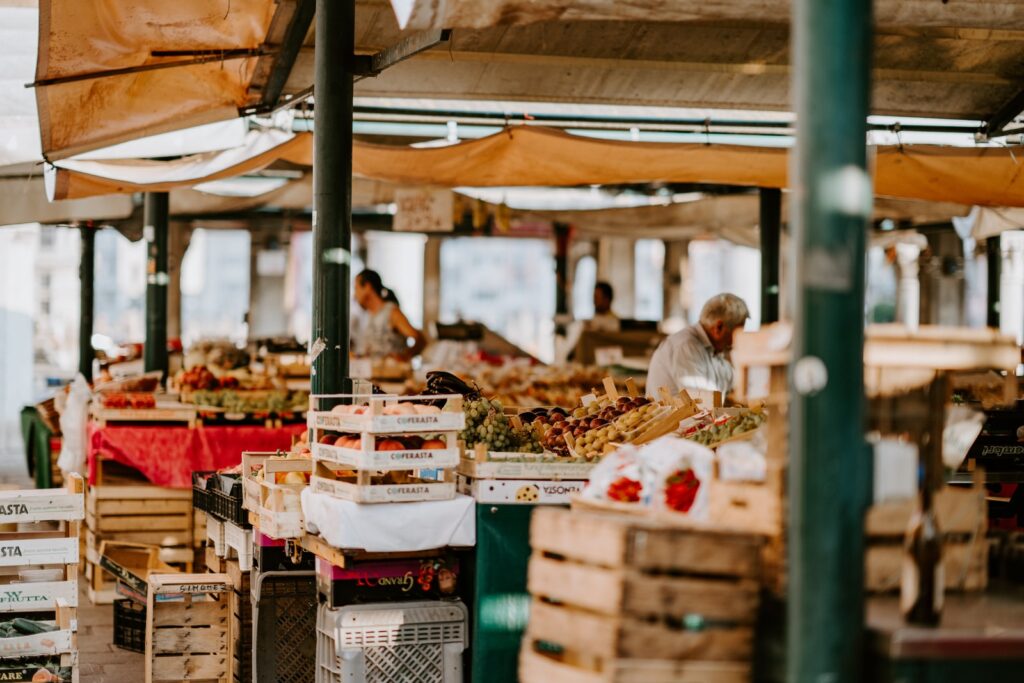
Vendor Relationships
Vendors are the lifeblood of a farmer’s market. They bring in customers and keep the market thriving. But conflicts between vendors and management are inevitable, and they can be a huge problem.
Here are some examples of common conflicts that vendors have with market leadership:
- A vendor becomes disgruntled with a decision by the market management.
- A vendor violates market rules.
- A vendor is displeased with the booth/stall assignment.
- A vendor uses tactics to market products and attracts customers that are disagreeable with customers or other vendors.
- Vendors may conflict with each other over pricing or product selection.
These conflicts can lead to an array of undesirable outcomes, including unpleasant interactions between vendors and/or market leaders, and vendors withdrawing or being ejected from the market. In a worst-case scenario, a conflict can escalate into a lawsuit—although vendor lawsuits against markets are uncommon and usually difficult to succeed upon, the stress and bad publicity alone can negatively impact a farmers market.
To avoid conflict, farmers markets should be proactive about vendor selection and monitoring. They should also make sure that vendors are aware of the market’s rules and regulations and how to resolve disputes before they arise.
Relationship to Host Site
When you’re a farmers market operator, it’s important to be aware of the risks associated with your rented or leased location. These risks include disagreements with landowners, construction on or near the property, and changes in how and when you can use the space.
Some farmers markets have formal agreements or leases in place and others rely on a verbal understanding. Either way, using rented or leased property can present risks for the farmers market:
Farmers markets and landowners may disagree about responsibility for cleanup, safety, traffic, or other concerns.
The landowner may decide to make the property available to someone else, start construction, change the layout, or otherwise make it difficult for the farmers market to operate.
The farmers market and landowner may run into disagreements about when the market may operate, for how long, and on what days. If the landowner serves only as landlord and does not contribute to the farmer’s market operation, then a land lease may be appropriate. If the landowner is involved in operating the market, then a management agreement may be more appropriate. The landowner may want to ensure that the market cannot move to a new location or take away customers and revenue from his or her business. The farmers market may want a written agreement in case it needs to terminate the lease for any reason.
Americans with Disabilities Act Compliance
The Americans with Disabilities Act (ADA) is a federal law that prohibits discrimination against people with disabilities in employment, state and local government services, commercial facilities, public accommodations, transportation, and telecommunications. The ADA became effective in 1992, but the regulations were revised in 2010 to make them easier to understand.
The regulations apply to employers with 15 or more employees (including state and local governments), as well as labor organizations, employment agencies, and joint labor-management committees.
Employers must provide reasonable accommodation for employees with disabilities unless doing so would cause undue hardship on the business. Reasonable accommodation may include: modifying existing facilities; acquiring equipment or devices; job restructuring; part-time or modified work schedules; reassignment to a vacant position; adjusting examinations, training materials or policies; providing qualified readers or interpreters; making the workplace accessible; and any other accommodations for individuals with disabilities.
Employers are also required to provide reasonable accommodation for applicants with disabilities who need accommodation to complete the application process if they meet certain requirements.
There are many resources available to help employers comply with these requirements. Employers should consult an attorney specializing in employment law when they have questions about their obligations under this law or when they need assistance developing policies and procedures that comply with the law. It is also important to consult an attorney when you become aware of a disability in one of your employees or applicants.
Conclusion
The farmers market insurance process is straightforward and with a bit of preparation, you can secure yourself for any unforeseen circumstances.
We hope this article has been helpful and we wish you the best of luck for your next farmer’s market season.
Have any questions about the insurance process? ‘
Leave them in the comments below and we will do our best to answer them.

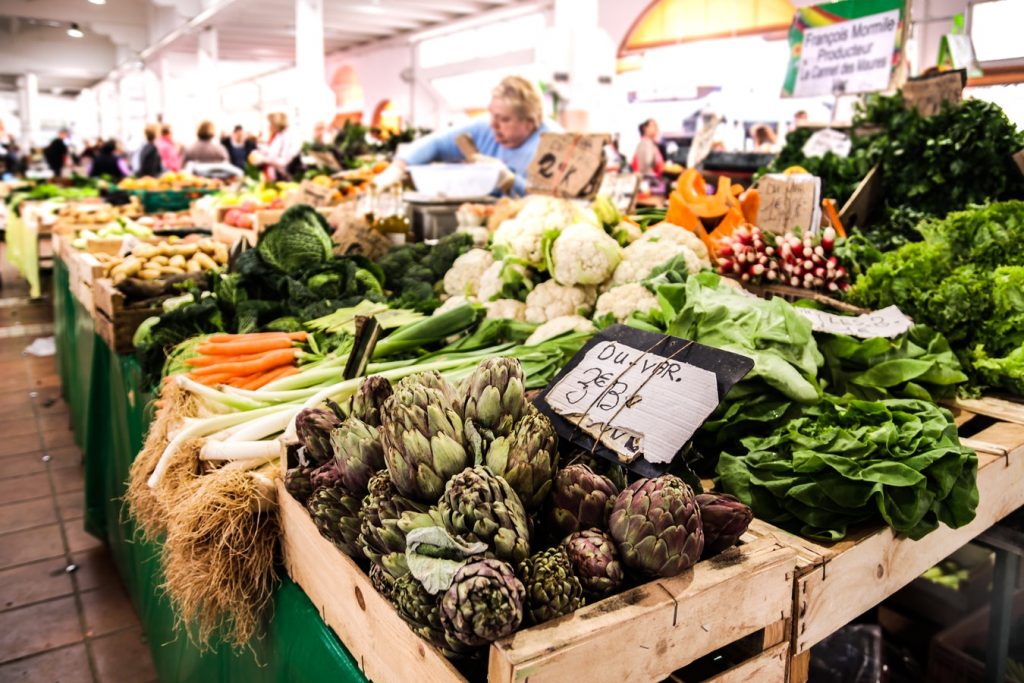


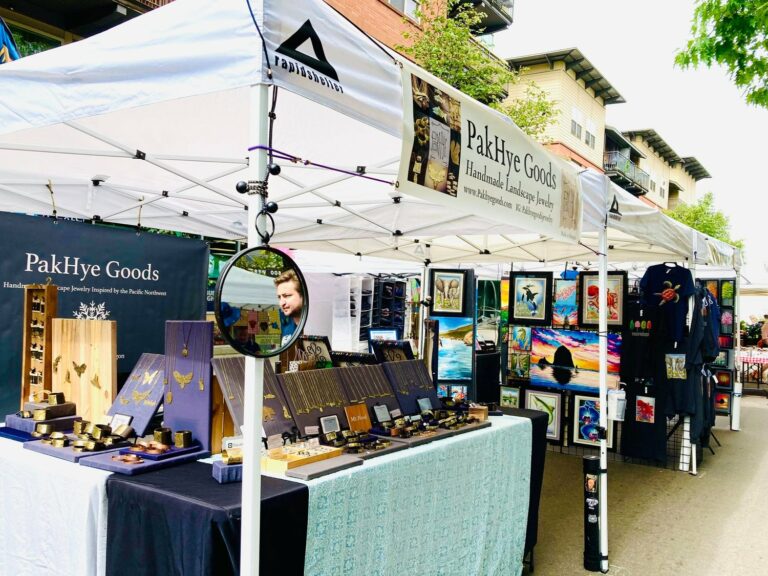

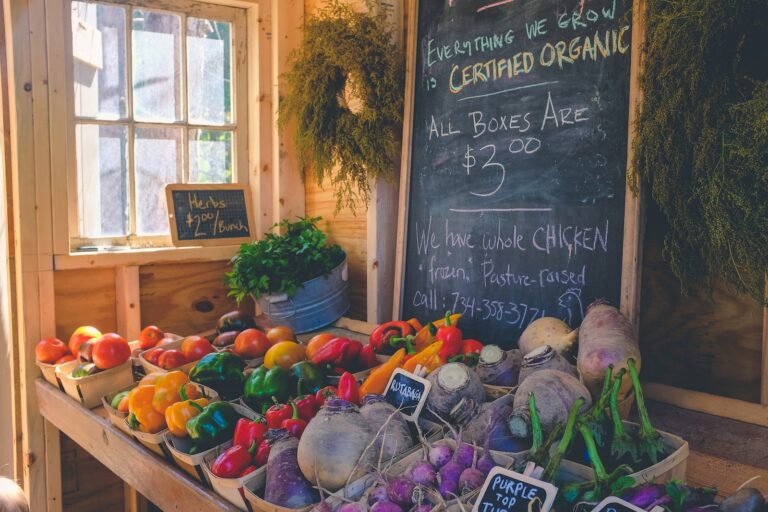
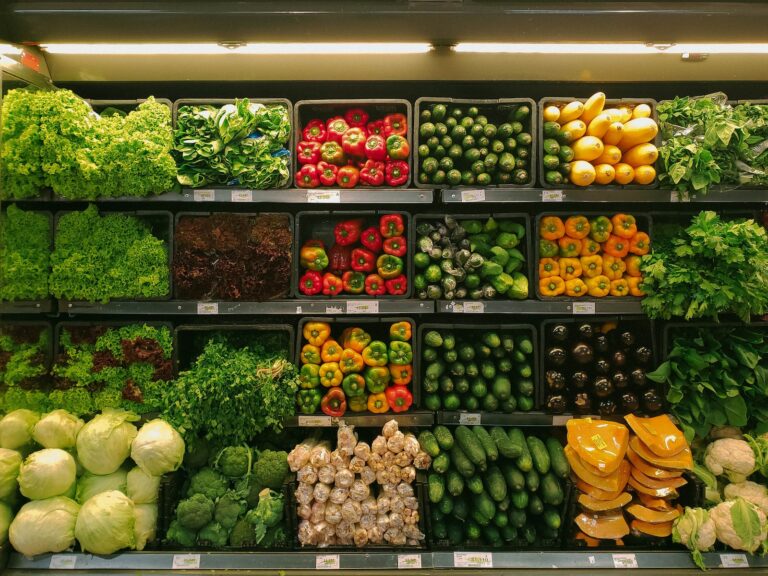
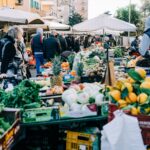



[…] food poisoning after eating one of the farmer’s apples, the farmer may be liable for damages. Product liability insurance can help farmers to cover the costs of such damages, as well as the costs of defending themselves […]
[…] Decatur: A hipster neighborhood is known for its art galleries, parks, and farmers’ market […]